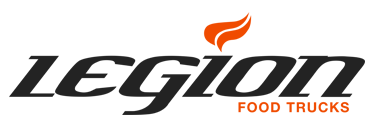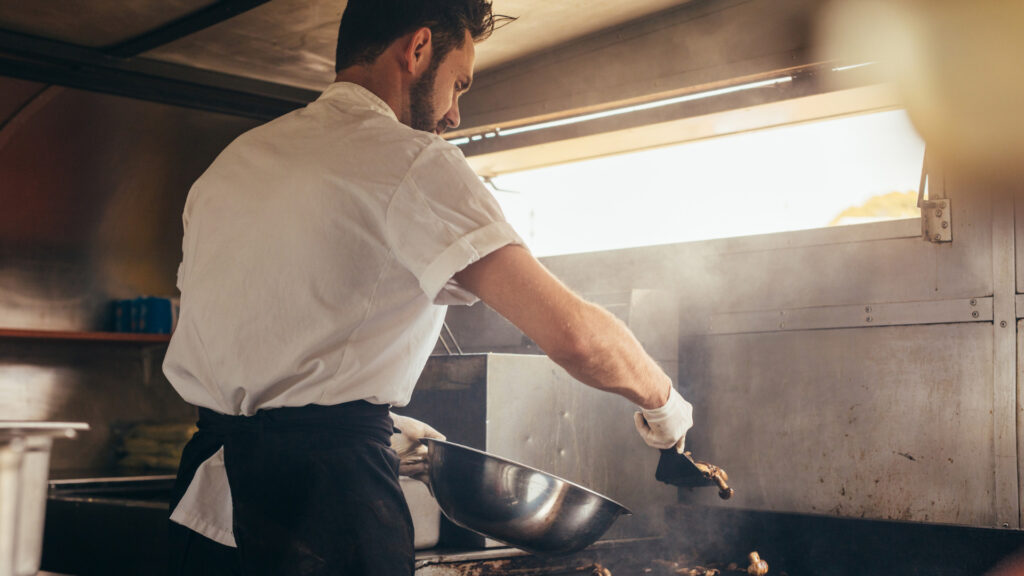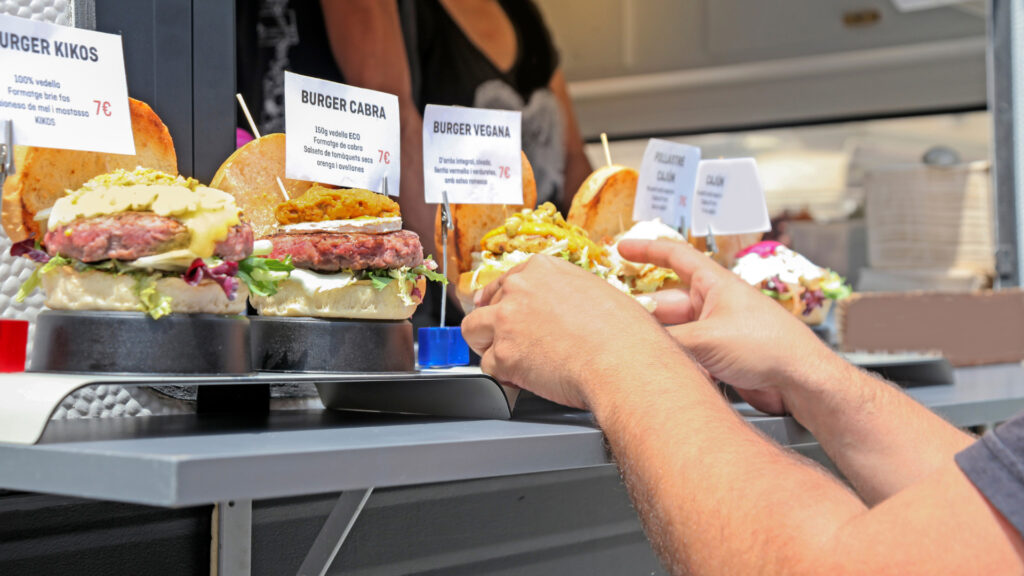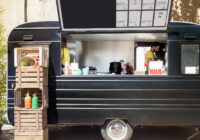Safety isn’t the most exciting part of running a food truck, but it’s absolutely crucial for protecting your team, your customers, and your business. After building hundreds of food trucks at Legion Food Trucks, we’ve learned that understanding safety requirements early makes compliance much easier down the road. Let’s break down everything you need to know about keeping your mobile kitchen safe and legal.
Fire Safety: Your First Priority
Fire safety in a food truck isn’t just about having an extinguisher hanging on the wall. Your entire fire suppression system needs to work together seamlessly. The heart of this system is your Type 1 hood with fire suppression. This system needs to cover all your cooking equipment that produces grease-laden vapors – think flat tops, grills, and fryers.
The suppression system should automatically shut off your gas line if triggered, and you’ll need manual pull stations installed at each exit. We recommend installing these slightly lower than you might think – in an emergency, you want them easily reachable even if you’re crawling to escape smoke.
Your fire extinguishers need to be the right type for different situations. You’ll need a Class K extinguisher for grease fires near your cooking area and an ABC extinguisher near the exit for general fire safety. Make sure they’re mounted securely but are easy to grab quickly.
Gas System Safety
Your gas system is critical and requires professional installation and regular inspection. All gas lines need to be properly secured and protected from vibration – remember, your truck is a moving vehicle. You’ll need an emergency gas shutoff that’s easily accessible, and we always recommend installing a gas leak detector.
The gas system should include proper ventilation and safety valves. Your propane tanks need to be mounted securely outside the vehicle, protected from impact but with enough airflow to prevent heat buildup. We always install a propane tank gauge that’s visible from both inside and outside the truck – running out of gas mid-service is both a safety hazard and bad for business.
Electrical Safety
Electrical systems in food trucks need to handle significant loads while dealing with movement and vibration. All wiring must be rated for mobile food service use and properly secured. We install GFCI protection on all outlets – this isn’t just a requirement, it’s essential protection against shock in an environment where water and electricity often coexist.
Your electrical panel needs to be easily accessible but protected from water and grease. We recommend a clear labeling system for all circuits – when you need to cut power to something quickly, you don’t want to be guessing which breaker controls what.
Ventilation Requirements
Proper ventilation does more than keep your truck comfortable – it’s essential for safety. Your hood system needs to be commercial grade and properly sized for your cooking equipment. The makeup air system is just as important as the exhaust – without adequate makeup air, your hood won’t work efficiently, and you risk creating negative air pressure in the truck.
Don’t forget about general ventilation for your staff. Working in a food truck during summer can be intense, and proper airflow helps prevent heat exhaustion. We recommend installing both powered ventilation fans and passive venting options.
Food Safety Infrastructure
Food safety starts with your truck’s design. You need separate hand washing and food prep sinks, with the hand sink easily accessible to all staff positions. Hot water isn’t optional – you need a water heater system that can maintain proper temperature throughout service.
Your refrigeration needs to maintain safe temperatures even during busy service when the door is frequently opened. We recommend installing temperature monitoring systems with alarms – they’re relatively inexpensive insurance against spoilage and foodborne illness.
All surfaces need to be food-grade and easily cleanable. This includes walls and ceilings, not just prep surfaces. Pay special attention to joints and corners – they should be sealed and coved to prevent bacterial growth.
Emergency Exits and Safety Equipment
Your truck needs at least two exits, and both should be easily accessible and unobstructed. We recommend installing emergency lighting that automatically activates when power is cut – remember, most food truck incidents happen during busy service when the truck is full of people and equipment.
First aid kits need to be comprehensive and easily accessible. Consider the types of injuries most common in commercial kitchens: burns, cuts, and slip-and-fall incidents. Your first aid supplies should be prepared to handle these situations.
Stability and Security
A stable truck is a safe truck. Your equipment needs to be properly secured to prevent shifting during transport. This means heavy-duty mounting systems for all major equipment and proper latching systems for doors and drawers.
The truck itself needs to be level when parked for service. We install stabilizing jacks as standard equipment – they’re essential for safe operation, especially with deep fryers or large volumes of hot liquid.
Documentation and Training
Keep all your safety documentation, including equipment manuals, inspection records, and maintenance logs, in an easily accessible location. Create written procedures for daily safety checks, emergency situations, and equipment operations.
Regular Inspections and Maintenance
Safety isn’t a one-time thing – it requires regular attention. Develop a schedule for checking all safety equipment: fire suppression systems, gas lines, electrical systems, and ventilation. Document these checks and any maintenance performed.
The Bottom Line
Safety requirements might seem overwhelming, but they’re manageable when properly planned and implemented. At Legion Food Trucks, we build these safety features into every truck from the ground up, making compliance part of your daily routine rather than a constant worry.
Remember, safety requirements can vary by location. While we’ve covered the major universal requirements here, always check with your local health department and fire marshal for specific regulations in your area. Want to learn more about how we can help you build a safe, compliant food truck? Our team is always here to help guide you through the process.







